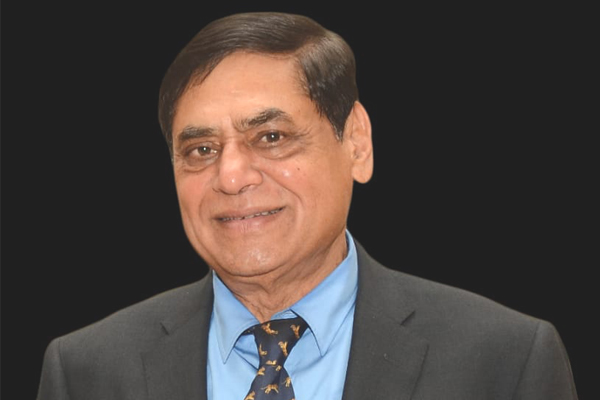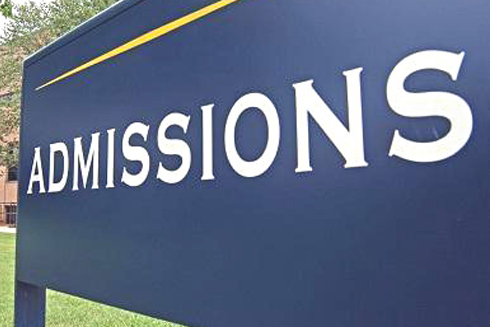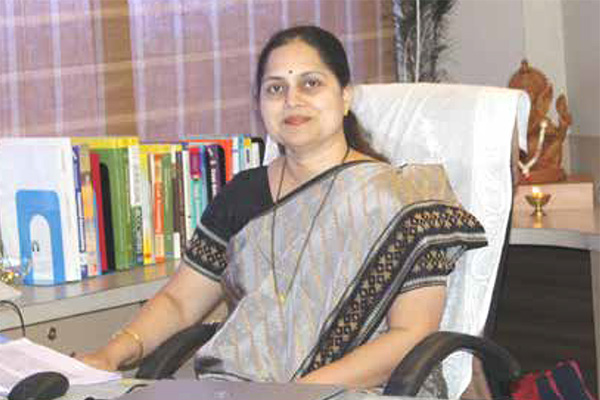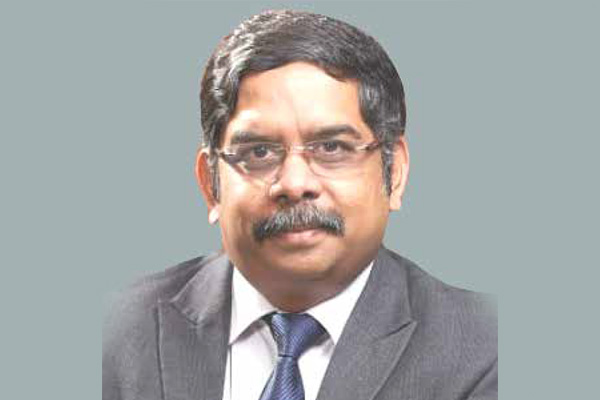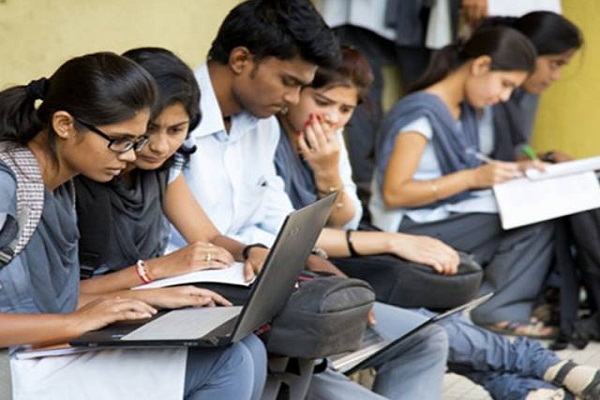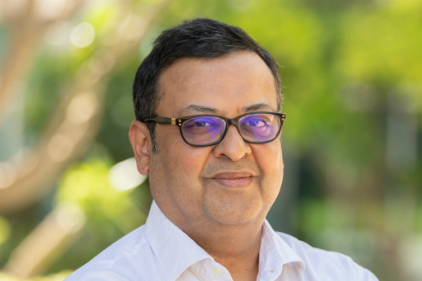At SSBF, we have robust curriculum which caters to the requirements of the industry. During the journey of MBA program, students imbibe qualities like patience and perseverance, says Dr Manisha Ketkar, Professor and Director, Symbiosis School of Banking and Finance in a conversation with Elets News Network (ENN).
Having worked in the pharmaceutical companies for the 16 years, what inspired you to join Symbiosis School of Banking and Finance?
I am a Cost Accountant and worked with an European multinational pharmaceutical company in Mumbai for about 11 years. I had earlier worked with a private pharmaceutical company for about 5 years. My experience included supply chain management and product costing. I was always interested in teaching and, as part of my job, had imparted small and big trainings to juniors, and made a numerous presentation to seniors from various parts of the world. I had attended a few training courses myself in India and abroad where I got insights into training methodologies, and the dos and don’ts. While considering our family’s move to Pune, I had decided to pursue a career in educational field, particularly in supply chain / material management and costing.
Symbiosis is a reputed institution in India and has a strong base in Pune. I joined them in 2006 in Symbiosis Institute of International Business (‘SIIB”) as a lecturer for the subjects in supply chain / material management and costing. I grew to become its Deputy Director and then the Officiating Director. I then got the opportunity to work with Symbiosis School of Banking and Finance (“SSBF”) as its Director from 2015. While in academics, I soon learnt that having a doctoral degree was a must. I therefore received my Masters in Business Sciences from the Pune University and received my Ph.D. in 2015 from Symbiosis International University.
While there are perceptible differences between industry employment and a teaching career, I found a few similarities too. High ethical values are the first one. I had worked in organisations with highest value system, and the same is applicable here with Symbiosis. Second, the basic managerial qualities required for efficiently running a division of a pharma company and a management institute are considerably similar. In short, my employment experience greatly helped my career in academics in multiple ways and I am thoroughly enjoying my stint here where I get to do what I love to do.
What makes your Institution different from other competitors offering similar programs?
Symbiosis School of Banking and Finance (SSBF), is a constituent of Symbiosis International (Deemed University) (SIU). SSBF offers a full time, two year residential MBA program in Banking and Finance. The focus of study is to prepare the students as industry ready professionals to pursue career in Banking, Financial Services and Insurance (BFSI) sector. SSBF has always kept itself abreast of the latest changes in the industry. In order to cater to the requirements of the dynamic finance sector, SSBF tunes its curriculum by soliciting inputs from the Industry stalwarts. Hence, it is not surprising that SSBF has eminent and experienced people from the industry on the advisory board and alumni who provide inputs to keep our curriculum relevant and updated as per the demands of the industry.
Also read: The New Emerging Perspectives Post COVID-19 says Arti Chopra, Principal, Amity International School, Sector 46, Gurgaon
At SSBF, we have robust curriculum which caters to the requirements of the industry. During the journey of MBA program, students imbibe qualities like patience and perseverance. They develop analytical mindset through various exercises and activities. Students are introduced to various technological tools and platforms like Bloomberg, Capitaline, R programming, SQL, Advance Excel etc. which help them familiarize with technological advancements. Through experiential learning, students learn problem solving and decision making skills and broaden their outlook. As per the feedback received from companies, our students are productive in the first month because of their efforts and qualities imbibed at SSBF. Because of the diverse culture on the campus, students learn to respect diversity and empathy towards each other. Through various events and activities students learn to be a team player and lead the team, if needed.
SSBF has patterned with EduCBA (Online training provider) to provide 700+ online modules in the finance domain to the students to have an edge over other MBA students. It ensures to gain additional knowledge on various aspects of Finance domain. It gives our students an edge over other MBA graduates.
We encourage students to appear for industry relevant certifications such as CCRA certification, Bloomberg certification, NISM certifications etc. Students get firsthand industry experience during Internship. Dissertation is a mandatory part of the curriculum where students get to research on chosen topic. Guest lectures by international faculty are also arranged to broaden the outlook of the students.
SSBF updates the curriculum every year to meet the requirements. SSBF have eminent and experienced people from the industry on the advisory board and alumni who provide inputs to keep our curriculum relevant.
What are the career opportunities for students offered at SSBF?
SSBF students excel in career in the field of Banking, Finance and Insurance. Having core in depth domain knowledge our students thrives in their work. Our students works in the profiles like Credit Management, Financial Risk Management, Project Finance, Micro Finance, Product managers in Banks, Life and General Insurance companies, Relationship Management, Business Analyst etc.
Every year, you have outstanding placement records for the students who pursue different courses from your institution. Give us an insight about the courses and their benefits to the students.
Symbiosis School of Banking and Finance (SSBF) is a reputed business school which exclusively caters to the needs of Banking, Finance and Insurance sector and hence, encourages candidates to join the Institute who aspire to make career in this domain. As SSBF caters to the specially designed course in Banking and Finance, students looking for a career in this sector are benefited from it. Students from PAN India aspiring to build a career in BFSI sector enrolls with our institute.
Apart from regular subjects of Banking, Finance and Insurance, subjects like Corporate Governance and Ethics, Legal Aspects of Business, Advance Excel, Business Analytics, Digital Marketing, Financial Product Design etc. enrich students’ knowledge and increase the probability of getting placed. Various activities are conducted by faculty with the help of students such as financial literacy workshops for undergraduate students of other institutes, live projects, simulations, problem solving exercises, participate in competitions, field visits, research paper discussions, article / report writing, financial and statistical lab activities.
The institute has robust placement committee which work to place all eligible* students. For last three years SSBF could achieve 100% placement of eligible students. (*Eligibility based on attendance, no backlog etc.)
What are your global objectives? Tell us about your collaborations with international institutions.
Internationalization of education and co-curricular activities is one of the central values at Symbiosis International (Deemed University) and thus at SSBF. We have created a community of students, staff, and faculty in which cross-cultural and international knowledge, attitudes, experiences, and action are part of the present and heritage for the future. Our mission is to help students develop a world view, see and analyze issues from various perspectives, understand the broad range of human experience and celebrate the diversity of the human spirit.
The faculty at our schools is chosen based on their positive attitude towards education. Our faculty members also need to be technology friendly and experts in their specific subject areas.
Collaborations:
• Macquarie University, Australia – M.Sc. Banking and Finance – Semester Exchange program
• Nuremberg Tech University, Germany – Faculty exchange, joint research opportunities
• University of PompeauFabra, Spain – Study India Program – Microfinance
• BSEL, Berlin – Winter School
• University of British Columbia (UBC), Canada – Summer School.







